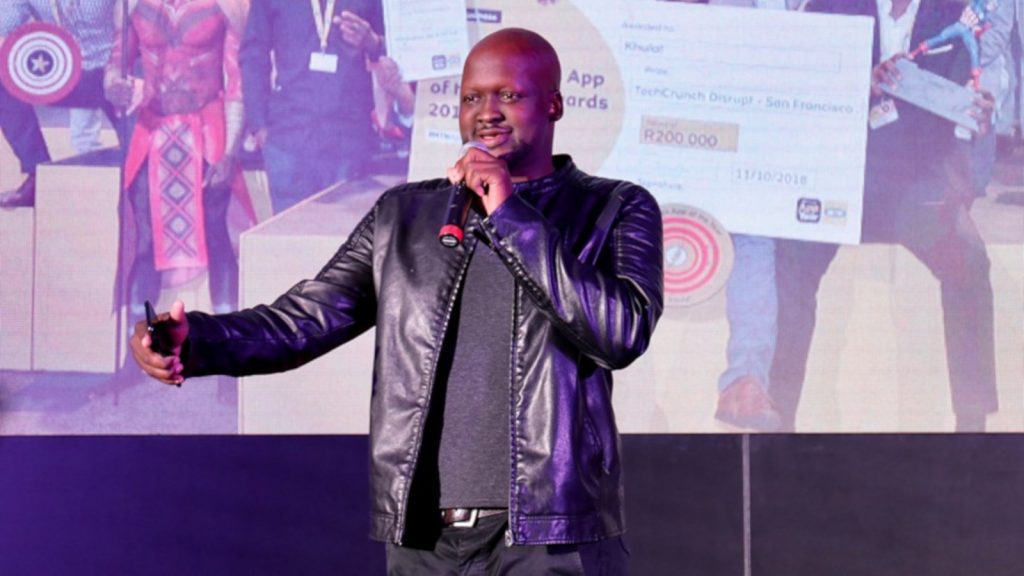We all have them. Those apps we open without thinking. Not because we need anything in particular, but because they feel… safe, in some…
Tips from four young African entrepreneurs on running startups

Running a business, no matter how old you are, is no easy feat.
As an entrepreneur not only do you have to deal with the day to day problems that come with owning a business venture — like dealing with financials, employees, and investors — but one also has to deal with personal issues as well.
So how do other young entrepreneurs do it?
Here are some tips from four young African entrepreneurs from across the continent on entrepreneurship, covering everything from dealing with stress, leadership and working with finances.
‘Great teams make great companies’
For RideLink founder Daniel Mukisa, believes it’s impossible to lead a successful company without reading and harnessing as much knowledge as one possibly can.
His on-demand transport service currently employs 25 people (both full-time and part-time). In addition, the start-up has a pool of over 60 drivers to draw on.
The 25-year-old, who founded his first business in 2016, says he reads at least one new book every month including daily news relevant to his industry as well as other coverage on socio-economic issues.
“I am inspired in this particular regard by accomplished businessmen like Bill Gates whose writings I follow closely and Warren Buffet who is an avid read as well as Richard Branson. It appears to me that no truer words have ever be spoken: Great leaders are great readers,” he says.
Reading books, Mukisa says, is how he deals with the stress that comes along with being an entrepreneur. “It’s a good way to recoup energy and find peace in this not so simple journey,” he says.
‘Write a business plan as a team’
For those who are considering launching their own ventures, Mukisa advises prospective young entrepreneurs to consider writing their business plans as a team, rather than as an individual. “It will be rich,” he adds.
“When writing down financials, understate your revenue projections and keep your expenses twice your projections on expenditure to manage expectations. It’s not a race. Take your time to understand every detail because it matters,” says Mukisa.
His tip for juggling personal life and the business: “Remember to have fun while working,” he says.
‘Focus on serving your customer’
Khula co-founder 24-year old South African Karidas Tshintsholo (pictured above) says he doesn’t get the hype around business plans. He thinks that “tenderpreneurs” have made the business plan a central point of discussion in South Africa.
“Focus on serving your customer, the business plan is merely consequential. If anything I encourage a pitchdeck, a short and straight to the point document about what your business does,” he says.
‘Always have a spreadsheet’
When it comes to cashflow and financial planning, Tshintsholo insists that every entrepreneur must “always have a spreadsheet”.
“I don’t like them either, but they’re super important. Make sure you have planned at least seven months ahead,” he says.
He adds that it is very important to not plan around unconfirmed deals. “If the money is not in the bank then the deal is not confirmed — even if you signed some contract,” he points out.
Tshintsholo further explains that deal flow in South Africa is “incredibly slow” — it can take more than a year to close a deal, he says.
“Make sure you can bootstrap while waiting for deals to come in, even if it means doing something that’s not part of your core business in order to make extra cash. Sometimes you just need to survive long enough to see your business succeed,” he advises.
Faith helps
Tshintsholo, who’s a Christian, says his faith has helped him “sail through” some of the most difficult parts of his entrepreneurial journey.
“Also lots of soccer, gym — sometimes — and a good night-out every now and then usually does me some good as well,” he says.
‘Execution is the real test’
Tshintsholo says one of the key lessons on entrepreneurship is around execution of ideas. “Good ideas mean very little in the real world, execution is the real test,” he says.
He also says he’s learnt that as an entrepreneur, you’re not allowed to quit. “Change your business model, start a new business if you have to, but you’re not allowed to quit,” he explains.
‘Nobody owes you anything’
“Nobody owes you funding, nobody owes you support, nobody owes you anything. If you want to succeed in the long-term you must work hard on creating real value that people will pay for. Full stop,” says Tshintsholo.
Lastly, he adds, be kind to people. “You need a lot of luck to make it in this game.”
‘Get away for a few days’
Youth Initiative for Development in Africa (Yida) co-founder 23-year old Rwandan Vanessa Ishimwe deals with stress differently.
Her social enterprise, which she founded in 2014 together with Ntakiruta James Gihoma and Baraka Benedict, provides free early childhood education to refugee children in Kyaka II refugee settlement camp in Uganda.
Asked how she deals with the stress of running the social enterprise, Ishimwe says she buys a lot of pizza.
“Running a business, mostly a start-up, is very tiresome and demanding. Most of the times I ask myself questions of doubt in what I do, but, most times I talk to someone about what is going on and I also get away for a few days for me to regroup, and I try to do the things that I love — which include eating,” she says.
‘Company money is not personal money’
For 19-year-old Sierra Leonean Alhaji Siraj Bah, who is the founder of Rugsal Trading, it’s crucial to employ people who are experts in accounting and financial planning.
Bah’s company produces smokeless coconut husk briquettes and hand crafted paper bags and is also expanding into the agriculture sector.
He also adds that young entrepreneurs should not celebrate success too early by spending lavishly as business “won’t always be good”.
“Have it in mind that your company money is your company money, not your personal money,” says Bah.
When it comes to stress, Bah believes its part of an entrepreneur’s life.
“In business you shouldn’t be afraid of stress, it should be part of you and you should be able to overcome it all,” he explains.
This story appeared originally on the Anzisha Prize’s blog on 3 July. See it here.
Featured image: Khula co-founder Karidas Tshintsholo (The Anzisha Prize via Facebook)
The Anzisha Prize seeks to fundamentally and significantly increase the number of job generative entrepreneurs in Africa, and is a partnership between African Leadership Academy and Mastercard Foundation. Through Ventureburn, they hope to share inspirational and relatable stories of very young (15 to 22 year old) African entrepreneurs and the people that support them. [learn more]


